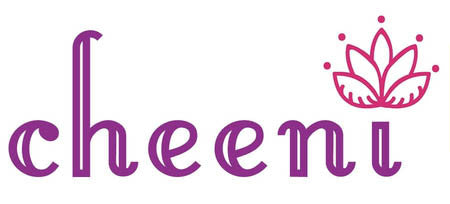Cheeni Blog
Yoga for Children
Looking for the perfect extracurricular activity for your child?
My daughter loves ballet, but she also really loves yoga. Moving and stretching into all of the poses is a wonderful outlet for her 6-year old energy levels. I’ve also watched how yoga has provided countless benefits beyond the physical for her as well: When she gets stressed or overwhelmed she remembers to take a deep “yoga breath” to manage her feelings from a calm headspace, a technique that she learned from her kid-friendly yoga classes. Yoga has helped develop her focus and concentration skills in school, resulting in deeper engagement and less fidgeting in the classroom. And a few quick, grounding poses help us wind things down in the evenings while we get ready for bed.
The beauty of yoga is that it proves to be a dynamic and beneficial option for just about anyone, and for children in particular. Packed with lifelong benefits ranging from mental, behavioral, emotional, and physical-- yoga combines strengthening and stretching poses with deep breathing, meditation, relaxation, and setting mindful intentions.
Yoga is even being introduced into schools across the US and proves to have an enormously positive impact on students of all ages. Not only are the poses a wonderful way to counter long days of sitting still in classrooms, but the practice also refreshes the ability to concentrate and focus on lessons.
There are countless yoga studios who offer classes for parents and babies or toddlers, or just for children. You may think a toddler would bore easily and quickly, but the classes for young children are engineered to keep them engaged throughout, taking them on an entertaining adventure with interactive games, storytelling, and singing songs. Themes like compassion, gratitude, self-awareness, and strength are intertwined throughout the classes.
Below are some more detailed ways that yoga helps young minds as well as grown-up ones, and to motivate you and your child to begin your yoga practice today!
Builds Confidence
Perhaps some of the most noteworthy attributes of yoga is the emphasis on self-development, self-acceptance, and self-awareness-- rather than on competition and comparison. A yoga practice reminds children to focus on their OWN journey, to go at their own pace, and to become aware of the unique power inside of themselves. These integrated principles help instill confidence and boost self-esteem, traits which children will carry with them over the course of their lifetime. Building a stronger self-image early on helps children conquer their fears, manage challenges, problem-solve, and gain a sense of healthy independence into adulthood.
Some poses you and your little one can practice together on your mat at home to help build confidence: Half Moon Pose, Chair Pose, Warrior II.
Teaches Mindfulness
Yoga teaches children the value of consciously bringing their focus into the present moment. Mindful presence has been found to decrease stress and anxiety levels, and boost emotional wellness. Mindfulness also helps develop problem solving skills, prevents teen depression, and enhances sleep quality.
Before bedtime, you and your child can practice mindfulness using short interactive breathing meditations, such as diaphragmatic breathing (commonly known as alternate-nose breathing) while sitting in lotus position, or cross-legged, with eyes closed. This simple breathing activity helps children calm and stay centered, enhancing mindfulness, focus, and presence.
Improves Concentration
I read somewhere that “yoga is the reduction of fluctuations of the mind,” meaning that we use yoga in order to focus the mind. Between the myriad of touch screen devices, apps, television, and the internet-- children are faced with more distractions than ever these days. Research has proven that constantly being bombarded with so many different distractions contributes to ADHD and other attention disorders from a young age. Yoga is a wonderfully effective way to counteract all of these modern-day distractions, as well as quiet the mind and improve concentration. A recent study found that just 20 minute of yoga per day improves brain function and synapses between brain cells. The study concluded that after practicing yoga for just twenty minutes daily, the participants were better able to process their mental resources, process information more quickly, and learn more efficiently.
Practice deepening focus and concentration with your child at home with deep breathing exercises, Sivasana Pose, Chair Pose, Mountain Pose, and seated forward bend.
Promotes Physical Health
Children love movement, so yoga is the perfect way for them to harness their active energy in a productive way. Young bodies are naturally flexible, and practicing stretching poses from an early age enables them to maintain their flexibility throughout adulthood. Plus, learning different yoga poses allows children to develop their bodily awareness, to strengthen muscles, and to realize how powerful their bodies are. Yoga is also known for its ability to help grow strong bones, detox, and strengthen the immune system.
Head outdoors with your child and get your daily dose of movement (and fresh air) with a twenty minute repeated series of Sun Salutations!
Balance and Coordination
The effect yoga postures have on balance, coordination, and flexibility skills in developing children has proven to be substantial. Obtaining balance and coordination skills during childhood are important, and can be extra refined through a yoga practice. Balance comes from repeated movements, mastering transitions, and developing strength. There are an array of yoga poses which were designed to help develop balance and coordination, these poses promote physical poise as well as mental clarity and dexterity. Even if your child fails to achieve a one-legged balancing pose their first try, remind them that yoga is about the journey, encourage them to keep trying, and remember to have fun!
Poses to try for balance and coordination: Eagle Pose, Dolphin Plank Pose, Side Plank Pose, and Tree Pose.
Stress Management
Children are faced with countless everyday stresses. Learning to juggle school, homework, friendships, after-school activities, plus, the added expectations of their parents and teachers and peers. They need an outlet for their stress just as adults do. Yoga can be a comprehensive approach to stress, and offers relief from the tension-filled lives of children. Yoga aids in shifting awareness inwardly so that children can become attuned to their own emotions and mental patterns and ultimately learn to manage them better, thus counteracting negative influences, pressures, and expectations.
To calm and relieve stress and tension, try: Child’s Pose, Mountain Pose, Downward Dog, Baby Cobra.
Now that you’re motivated to begin your yoga practice with your little one, where to start!?
The best thing about yoga is that it is simple: all you need to do just show up on your mat. You actually don't even need to go out or find a studio for a class, you can practice right from your bedroom, basement, kitchen, backyard, or your community park. The internet is full of yoga games you can do at home with your child, and countless instructional yoga videos which guide you through each pose.
Check out Cosmic Kids, a great website that makes yoga for children a fun at-home adventure!
http://www.cosmickids.com/
Do a quick Google search to see if there are any kid-friendly yoga classes near you!

